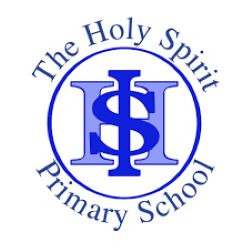Context for joining Behaviour Hubs
The Holy Spirit school is a small primary school of around 100 pupils, located in the small estate of Halton Brook, Runcorn, Cheshire. This is known to be one of the most deprived areas both economically and socially. The Holy Spirit School has a large percentage of pupils eligible for free school meals and over 60% receive pupil premium. Many of our families are open to services such as early help – the need would include those from low-income families, unemployment and low aspirations.
It is important to us that our children leave The Holy Spirit School prepared for the future and develop resilience so they become life-long learners having achieved their full potential. As well as offering our new high quality curriculum, we value our Catholic mission and understand that all good things happen with a whole school approach. We set high standards and expectations for our pupils to ensure they have every opportunity to succeed including those with SEND. Our school has 63% FSM and 38% SEN.
Behaviour challenges and goals
We wanted to create a whole school behaviour policy that:
- Re-established the school rules – Ready, Respectful, Safe (RRS) for staff and pupils
- Supported leaders to build respectful relationships with staff, pupils, families and stakeholders during unstructured times
- Communicated effectively with parents/carers regarding pupils’ achievements and wellbeing
- Ensured designated staff understood how mental health risk factors, incl. trauma and bereavement, can affect behaviour and support staff to understand it as part of their behaviour approach.
There were inconsistencies in the implementation of the Behaviour Policy in some classes, due to newly appointed staff and due to the change of behaviour expectations post pandemic.
- Staff were not confident in dealing with behavioural issues and were reliant on SLT
- The Behaviour Policy was not concise and clear enough to be followed by all staff, including support staff
- Ready, Respectful, Safe needed clarification with clear examples, as children were reciting the rules without much thought about their meaning
- Behaviour expectations were not effectively reinforced by parents at home.
Solutions to behaviour challenges
In order to achieve this, in consultation with staff the SLT updated the Behaviour Policy to be more concise, to simplify the script and to include clear examples of Ready, Respectful and Safe. The policy also reflects our School Mission statement: ‘In the Spirit of Love and Forgiveness, Our Family Learns to Grow with Hope and Joy’, the recently updated School moto – Love, Believe, Achieve and Thrive and School values – Love, Mutual Respect, Forgiveness, Teamwork, Honesty, Responsibility.
Following a consultation with pupils from each class, a set of examples for our school rules was devised, which provided the basis for a child-friendly set of rules to be shared with all children and displayed in all classes.
To help the integration of the new Reception children, we have implemented the Buddy system, where each YR child has a Y6 buddy, to provide guidance, support and good models for behaviour.
The Behaviour Hubs programme provided training opportunities to strengthen staff’s confidence in dealing with low level disruption and other examples of poor behaviour.
To help with explaining the updated Behaviour Policy to parents, SLT have updated the home-school agreement, outlining the implications of the school rules – expectations, rewards, consequences etc.
To minimise the disruption to classroom routine at the start of the day and following the effective ‘meet and greet’ practice at The Beacon School, the Headteacher and the FSW are meeting and greeting parents and children every morning at drop off time and making notes of any issues/messages parents would like to pass onto staff.
We have changed the DoJo reward system to be accumulative, so instead of deleting the DoJo’s at the end of every term, children can add to their accumulated points to achieve their milestone (Bronze, Silver, Gold, Platinum and Rainbow) and receive the associated rewards.
Impact on behaviour
The new Behaviour Policy has given us a wide range of outcomes including:
- Children who make the right choices and feel valued and rewarded regularly
- Staff and children now view the behaviour at The Holy Spirit to be positive, including lunch times (children are much calmer)
- Staff feel that children have a better understanding of how to live out our school rules and mission, where the youngest children are quickly learning our behaviour expectations with the help of their buddies
- Staff view on our Behaviour Hubs journey has been largely positive, and that our new systems and routines has given them the confidence and tools to promote positive behaviour in and around school, including break time and lunch breaks
- Staff feel better equipped to quickly identify children whose behaviour is causing a concern and are able to seek help regarding interventions
- Children can confidently talk about our behaviour system, linking to rewards and consequences. They can also talk about the improvements made
- Staff feel that the morning routines in classes are running much more smoothly. Parents have also commented that they find the new system really effective
When we had our last full Ofsted inspection, this is what they had to say about behaviour:
“Pupils feel safe and enjoy coming to school, pupils act considerately to staff and each other, they work hard and behave well in lessons”.
–Ofsted July 2022
Next steps on your behaviour journey
From our survey results and our own judgement, we have identified the following:
- We will seek to regularly revisit the Behaviour Policy with staff and children every term
- We will continue to seek our parents/children/staff voice to help us measure the effectiveness of our behaviour systems
- SLT have sourced further training regarding trauma informed practice to better equip staff in dealing with the increasing number of pupils who have SEMH needs.

